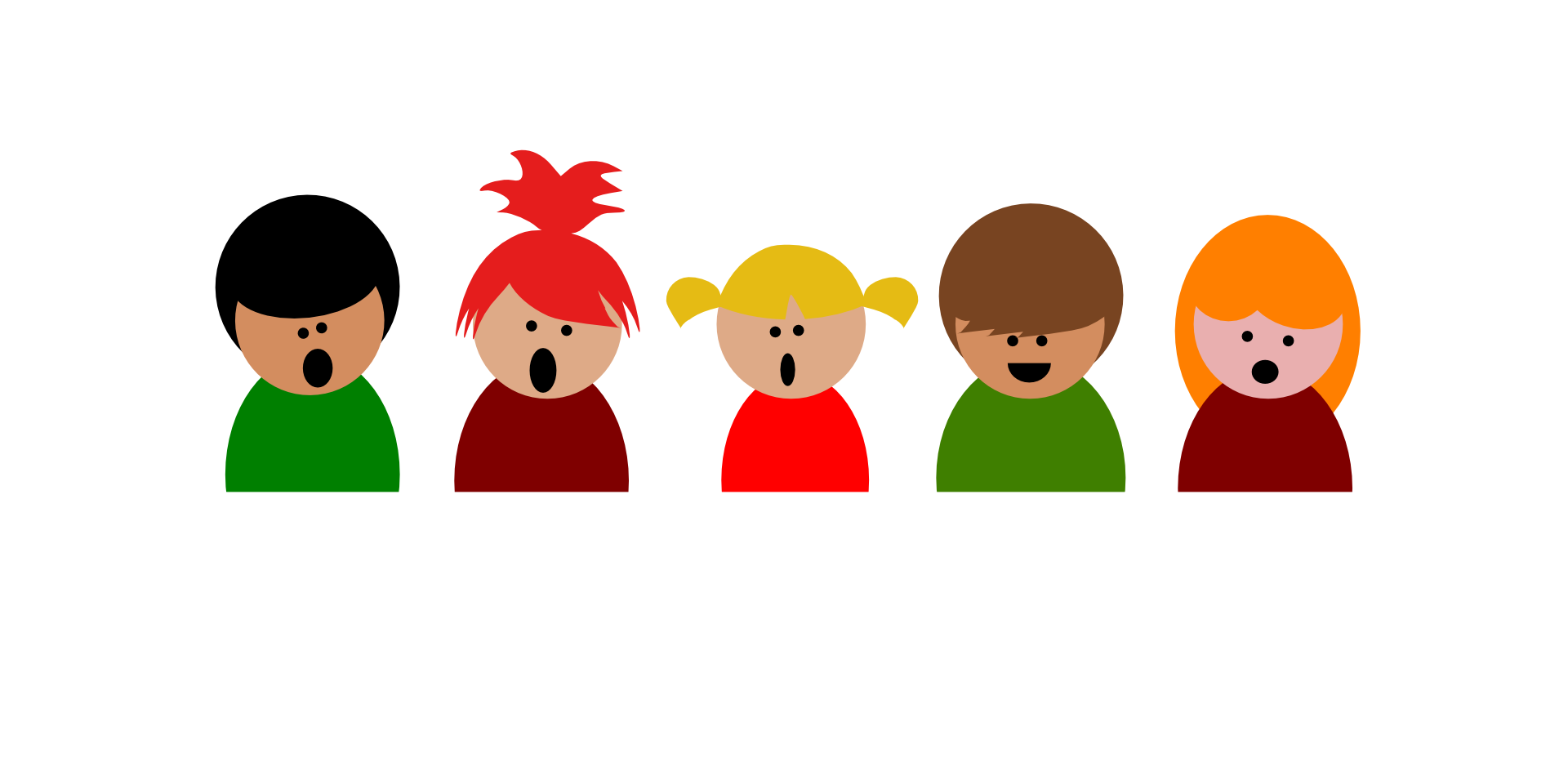You want the best for your children as a parent. There are multiple benefits of music for children while they are growing up. This can include their physical, mental, and intellectual well-being. This is particularly true as they mature. To make sure that your kids are ready for the day when they are on their own, you want to provide them with the best.
What better way to get them ready and make sure they receive the finest than through music? The fact is that as they grow older, your kids will be exposed to music and songs that will have a significant impact on their lifestyle.
Here are seven benefits of music for children that might help your kids as they grow.
1. It helps to improve their brainpower

Science has shown that children can benefit from music and that it is good for their health. One of the benefits is that it helps them get smarter and remember things better. A study found that a musician’s brain works differently than a person who doesn’t play music. Also, it was found that students who listened to music as kids did better in school than those who didn’t. Music helps wake up the part of the brain in charge of learning to read, do the math, and feel emotions. This should be reason enough to interest your kids in music and other related activities.
2. It helps them develop social skills
As they grow up, many kids find it hard to fit in with their peers. The best way to help them get over this is to get them to play a musical instrument or join a singing group. This helps them learn social skills like getting along with others, working in a team, being a leader and following the rules, and valuing rewards and success.
3. It helps them build their confidence
If you see that your child lacks confidence, teaching them to play a musical instrument could help a lot. When a person realizes that they can learn a skill on their own, it gives them the boost of self-confidence and self-belief they need. As time goes on, they will get better and feel even better about what they can do.
4. It is a great form of expression

Music is a great way for your kids to express themselves. Your kids can express themselves better if they know how to write songs, sing, and perform on stage. It will help them develop social skills.
5. It teaches them discipline
Learning to play an instrument or improve as a singer needs discipline and perseverance. Your children will require a lot of practice. When your children develop this practice, it teaches them the value of discipline and following through. They realize that to improve, they must invest time. This helps individuals become more disciplined and to pursue their goals.
6. It inspires creativity
You will agree with me that some of the most creative people today are musicians. Your kids will get in touch with their creative sides when they write the words to a song or try a new way to play the guitar. This gives them a business advantage over their friends and will help them in the future.
7. It teaches them patience

If you have ever watched a choral band play, you will notice that each member is very patient. Before they play, band members must always wait for the signal from the person in charge. If they don’t, the song won’t sound right. The same happens when your kids play with other kids in a group. They learn how to be patient and how it affects other people. They also learn to work with others to make something as beautiful as music.
Music and the Brain: Benefits of Music for Children
In 2016, the Brain and Creativity Institute at the University of Southern California found that listening to music as a child can speed up brain development, especially when learning language and reading. The NAMM Foundation, which is part of the National Association of Music Merchants, says that learning to play an instrument can help with math and even raise SAT scores.
But learning and listening to music has more benefits than helping kids do better in school. Music boosts a child’s intellectual, social-emotional, motor, language, and overall literacy skills, which help them get ready for school. It makes the mind and body work better together. When kids listen to music when they are young, it helps them learn how words sound and what they mean. Dancing to music helps kids develop their motor skills and gives them a chance to show who they are. Music helps both kids and adults remember things better.
Music not only helps us grow, but it also makes us happy. Just think about driving with the window down and a good song on the radio.
Music Games for Kids of all Ages

Try these games and activities with your kids to show them how much fun and how much they can learn from music.
Infants and Music: Infants can tell what a song sounds like long before they can understand the words. Babies can be calmed by quiet background music, especially when it’s time to sleep. Sing short, simple songs to infants. Try making up a song about taking a bath, getting dressed, or eating that you can sing to them while you do these things.
Toddlers and Music: Toddlers enjoy dancing and moving to music. Repetition is essential in toddler music, which promotes language development and memorization. Toddlers enjoy silly songs. Sing a classic song while substituting a ridiculous word for the correct word, such as “Mary had a little spider” for lamb. Allow children to imitate rhythms by clapping or tapping on things.
Preschoolers and Music: Preschoolers like singing simply for the sake of it. They aren’t self-conscious about their talent, and most are eager to let their voices roar. They enjoy songs that repeat phrases and melodies, have a distinct tempo, and ask them to do tasks and follow directions. Preschoolers love nursery rhymes and songs about familiar things such as toys, animals, people, and play activities. They also enjoy finger plays and silly rhymes, with or without music.
School-Age Children and Music: School-age children begin to express their preferences for various forms of music. They may show a passion for music education, such as children’s music lessons.
Getting kids interested in music through fun activities has no bad side. From the time we are born, we enjoy the benefits of music. Music can make the lives of children and those who care for them happier and better, from the pure joy of listening to soothing sounds and rhythmic harmonies to learning a new language and social skills.
Fun ways to include the benefits of music for children into your everyday activities
You now know why music is good for kids as they grow up. Here are some fun ways to include it into your daily life:
- Tell them stories before they go to sleep.
- Get karaoke equipment for your home and sing some old songs with your kids.
- Teach them some songs they can sing while doing things like brushing their teeth or remembering the names of the planets.
- Show them around your neighborhood while playing music.
- Are you going on a long drive? Put on some karaoke to keep them busy.
- Plan a musical trip, like going to the symphony or opera.
Music is a very important and necessary part of a child’s life. You want to make sure that it has a good effect on them. With the advice in this article, there’s no reason to be shy. Bring out the karaoke machine and have fun with your kids singing your favorite songs.
Benefits of music for children- Final words
Music can greatly impact your child’s life, whether playing an instrument or just listening to music for fun. It will surely benefit your child in many ways, but the simple fact that it might make them happy is reason enough to start them young.
FAQs
Why is music important in early childhood?
Children develop numeracy, reading, and emotional abilities by listening to and creating music. Introducing music into routines and play in the early years benefits your child’s early development. It can get kids moving, thinking, and inspired to be creative.
Why is music vital for infants and toddlers?
Child’s brain changes when they are exposed to music. Music can, among other things, improve moods and empower young children by lowering stress levels. Even sad music can be beneficial due to its cathartic properties, which help children connect with their emotions.
Why is music important in child development?
Music has numerous advantages for children. They help develop cognitive growth, problem-solving, self-expression, and social development skills in youngsters. A child’s learning is incomplete if music is not included in early childhood education.
What are the benefits of music for children in early childhood education?
6 Benefits Of Music for children and their Education In Early Childhood
- Improve your fine motor skills and coordination.
- Improve your language development.
- Improve your concentration and memory.
- Enhance your fundamental math skills.
- Improve Discipline and Collaboration.
- Increase your self-esteem and confidence.
These were benefits of music for children while growing up.

